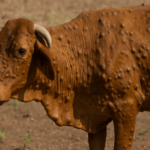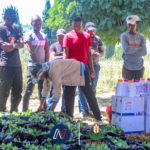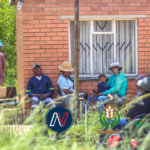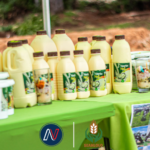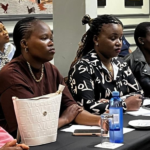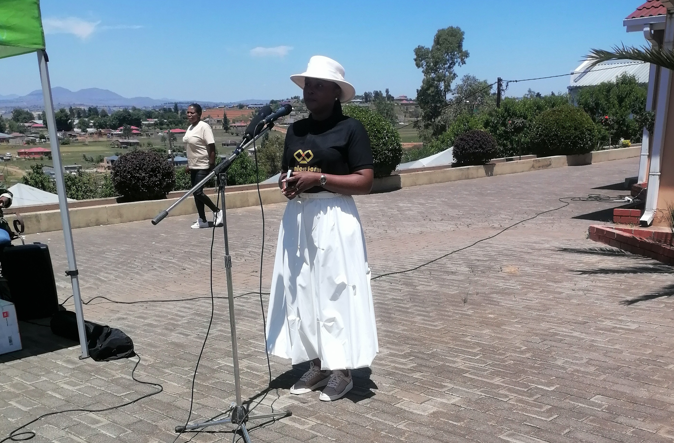There was music, laughter and a deep sense of pride at Ha Ratsiu in Berea as farmers, community members and government officials gathered to celebrate Premier Farm’s milestone achievement under the Smallholder Agriculture Development Project Phase II (SADP II).
The farm, owned by Mateboho Thotanyane, has officially completed Milestone Four, marking a remarkable journey of growth, resilience and innovation in Lesotho’s poultry sector.
Speaking with visible joy, Mateboho shared her story of perseverance recalling how her journey began in 2019 with rearing chickens, but after her first successful season, she sold her flock and used the money for other needs.
When SADP II came, she decided to start again, this time determined to build something lasting.
Through the project’s support, Mateboho began with 1,200 layer chickens, a number that has since grown to more than 3,000.
“The support changed everything. Before, I had one employee and today, I have eight people working full-time on the farm,” she said proudly.
SADP II provided both technical and financial assistance, helping her modernise housing structures, secure a reliable water supply and improve feed management.
The result has been a significant increase in egg production, healthier chickens and a growing business footprint that now reaches beyond Berea.
“Premier Farm supplies customers in Butha-Buthe, Mokhotlong, Thaba-Tseka, Maseru and Berea. We work through written contracts to ensure timely delivery and avoid waste. Our dream now is to expand further and begin proper egg packaging to meet national retail standards,” she said.
Thotanyane’s ambitions didn’t stop with poultry. With growing confidence, she ventured into pig farming and now manages more than 100 pigs. Beyond that, Premier Farm has become a model of sustainable agriculture.
“Nothing goes to waste on this farm. We use chicken and pig manure to produce biogas, which powers the farm. What remains becomes nutrient-rich manure that we use in our crop fields. It’s a full circle; energy, food and fertility all in one.”
This integrated system has not only reduced costs but also turned Premier Farm into a self-sustaining agribusiness, embodying SADP II’s goal of promoting productivity, sustainability and empowerment.
Mamello Sehalahala, an extension officer from Teyateyaneng, told the gathering that the day was not just about celebration but recognition.
“Today, we celebrate not only a milestone but a transformation of Premier Farm’s journey with SADP II. This shows that with commitment, training and the right support, smallholders can grow into commercial producers.”
The event attracted district officials, farmers and youth groups who came to witness what dedication can achieve.
Attendees toured the facilities, careful not to disturb the chickens, which are highly sensitive to noise.
The celebratory mood filled the farmyard, where each story shared reflected the hope that agriculture can still be a path to prosperity in Lesotho.
Representing the Minister of Agriculture, the Minister of Labour and Employment, Tšeliso Mokhosi, commended Thotanyane for her success, describing her as a symbol of women’s resilience in agribusiness.
“Farmers like Mateboho deserve more support. Her story is proof that when we invest in women farmers, we also create jobs, reduce unemployment and build food security for Lesotho,” he said.
He applauded SADP II for its continued work in strengthening the agriculture value chain and urged that similar support reach other farmers to ensure a wealthier nation.
According to Food and Agriculture Organization statistics, Lesotho’s total egg production reached 1.41 kilotons in 2022, a slight increase from the previous year.
While still below the record levels of 2014, the figures signal a sector on the rise, driven by dedicated farmers like Thotanyane.
The poultry industry has been identified as a vital area for fighting poverty and creating employment, as Lesotho still imports nearly 80 percent of its poultry and eggs from South Africa.
Experts say success stories like Premier Farm could help reverse this dependency trend.
“Improving poultry farming fights poverty, decreases unemployment and position Lesotho at a better place to be self-sufficiency,” said Malefane Tšiu the CEO of TKM Agricultural Solutions, praising the progress of local farmers supported by SADP II.
As the event drew to a close, Thotanyane expressed her gratitude, looking around her thriving farm with emotion.
“I could not have done this alone. SADP II gave me the tools, but hard work and community kept me going. My dream is to see more Basotho, especially women grow their farms and feed this nation,” she said.
Sponsored by


